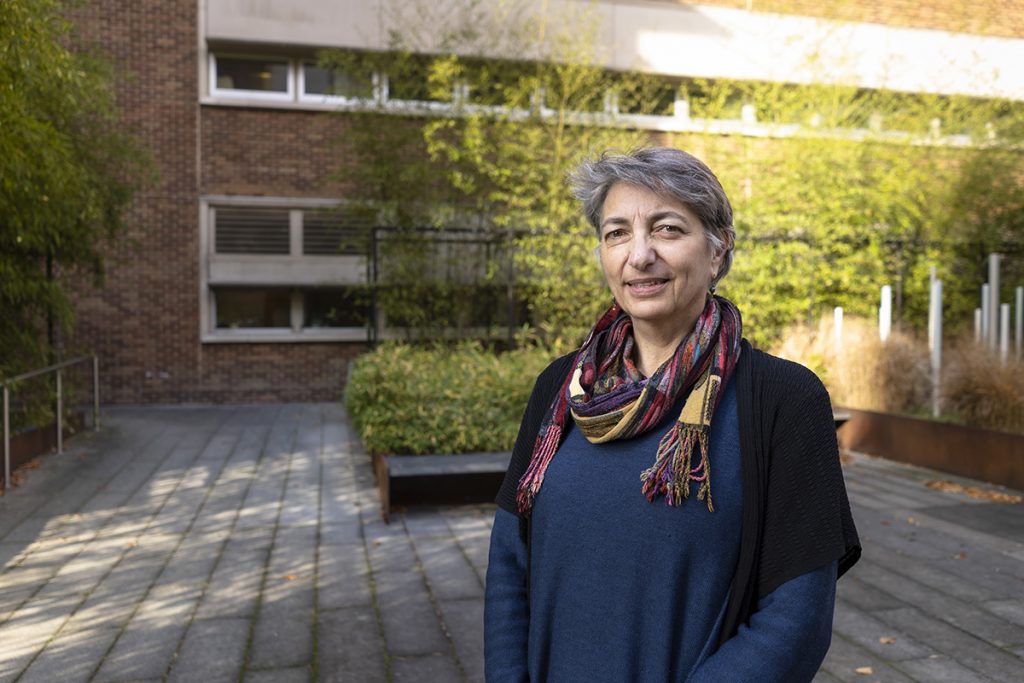
As the world reckons with the harms of systemic racism, the role of police violence in enforcing systemic racism has become more visible. When George Floyd died under the knee of a Minneapolis officer on May 25, 2020, it kicked off a long summer of protests around the world. Seattle-based protesters staged rallies, marches, and events each day for months. While participating in Black Lives Matter protests in Seattle, Amy Hagopian — a UW Department of Health Systems and Population Health (HSPop) faculty member and Health Services Ph.D. alum — witnessed the Seattle Police Department deploying “less-than-lethal” crowd control munitions.
“The use of pepper spray and tear gas was especially concerning, because of the effects on the respiratory system, and because fellow protesters were put at risk when they came to the aid of their comrades,” Hagopian said. “The COVID-19 pandemic was more than three months along when the protests began, compounding the health effects.”
The ACLU of Washington, on behalf of Black Lives Matter-King County, filed the first lawsuit against the city of Seattle in June 2020, on behalf of protesters who reported suffering injuries including penetration wounds, brain injuries, reproductive health effects, hearing loss, and compromised mental health.
“The use of pepper spray and tear gas was especially concerning, because of the effects on the respiratory system, and because fellow protesters were put at risk when they came to the aid of their comrades.”
— Amy Hagopian
For Hagopian, the experience was a stirring call to action. When a Seattle-based undergraduate, Amy Ozinsky, called up asking about opportunities to collaborate, the two discovered a mutual dedication to the ongoing Black Lives Matter protests, and a shared drive to amplify the problem of police violence as a threat to public health. “The beauty about projects like this, with no donor, is that they can unfurl organically and creatively,” Hagopian said. “We started thinking we’d just make a website with some reference materials, but when the lawsuits dropped, we realized there was a treasure trove of data that would make for a rich source of material for the website. Then we added an MPH student to the team, Seth Kramer, someone who was deeply engaged in the protests, and serving as a medic. And then we added his friend, Nouela Johnson, who was a website designer. We’ve met weekly since June!”
Together, the team collected evidence about the problem, and created a website with descriptions of more than 60 cases, along with photos of injuries (when available), and featuring affidavits filed by plaintiffs. “The affidavits serve as legal documents with a clear providence, and provide a rich database of material,” Hagopian said. “Many additional stories are not part of this lawsuit, and not all of the lawsuit cases are presented.”
This project is a natural extension of Hagopian’s broader work, which focuses on social justice problems that undermine public health, such as war, homelessness, income inequality, racism, and incarceration. “The unifying theme for me is that the ‘maldistribution of power’ undermines health,” she said. “Maybe it’s because I was a teenager during the American war in Vietnam, and spent my youth protesting that ridiculous waste of lives and treasury.”
Hagopian has been tackling these issues at University of Washington since she came here as an undergraduate in 1972. “I deeply appreciate the privilege I’ve enjoyed to work and study at the University of Washington, where I earned my Master of Health Administration and Health Services Ph.D.,” she said. “The training I received helped me think analytically about causal factors, and the links to upstream factors that aren’t obvious.”
Looking to the future, Hagopian hopes the team’s work will inspire fellow faculty to find ways to translate their research chops to efforts for social good. “Faculty could leverage their own privilege far more than we do in relation to the many injustices around us,” she said.
Domestically, she plans to continue her work on homelessness, along with colleagues at the UW Center for Health Innovation and Policy Science (CHIPS), which is housed in HSPop. Internationally, she is now serving as vice-chair of the steering committee of the Global Alliance on War, Conflict and Heath.